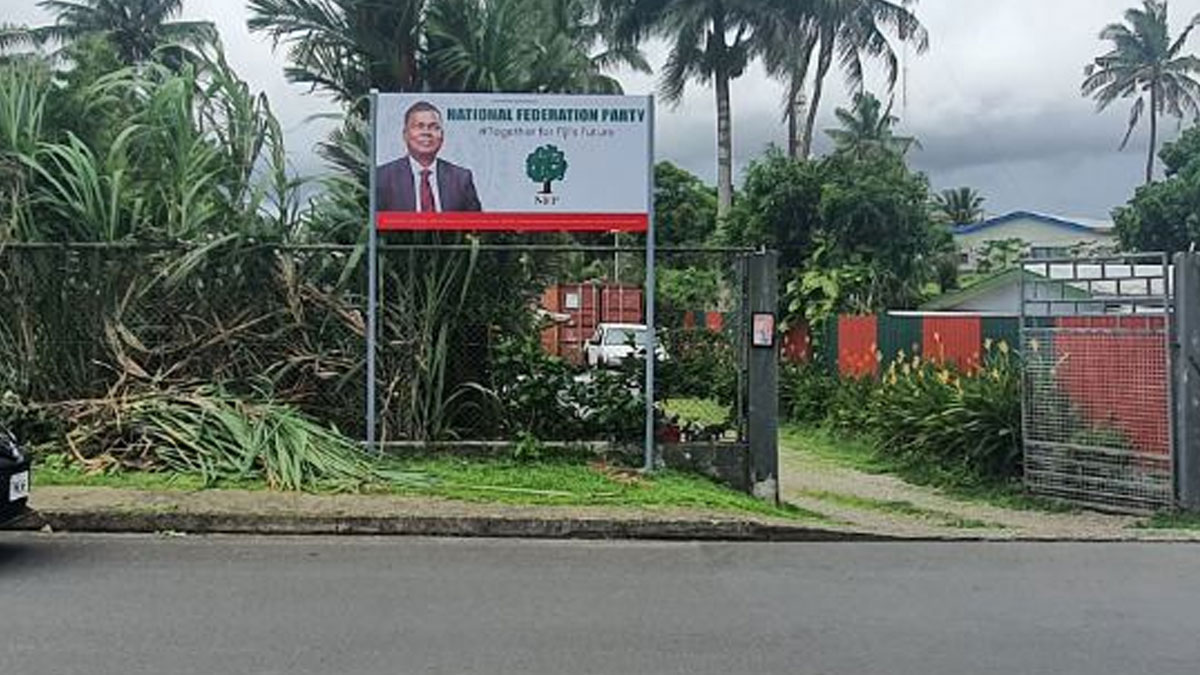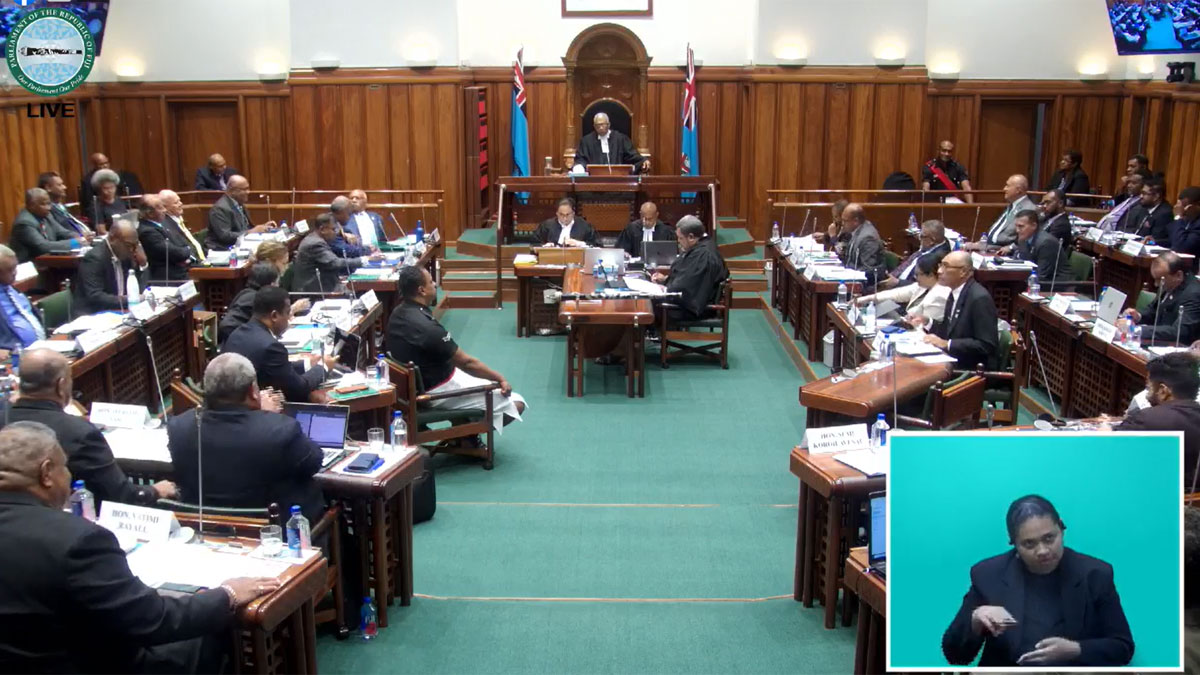
The National Federation Party had submitted to the Parliamentary Emoluments Committee in August last year that the committee should not make its own recommendations on the review of the salaries and allowances of the Prime Minister, Ministers, Assistant Ministers and Members of Parliament, and anything to the contrary will compromise the independence of this process.
In it’s submission which is contained in the report tabled in parliament by Committee Chair, Lynda Tabuya, the NFP says in the interest of transparency, the report should not be compiled or signed by the Members of Parliament but by experts and only endorsed by the Members.
NFP says the committee, in their firm view, should only be the conduit to take the report to the floor of parliament.
It says the committee should neither hear nor receive submissions on the review of salaries and allowances of the Prime Minister, Ministers and Members of Parliament without the active participation of independent experts.
The NFP adds it should not be the committee's role but that of the experts to scrutinise the submissions on the review of the salaries and allowances.
At the time the NFP had recommended, subject to independent analysis by experts: that there should be a reduction in salaries by 30 percent of the Prime Minister and Cabinet Ministers, and a reduction in overseas travel allowances for the Prime Minister, Cabinet Ministers, Assistant Ministers and Members of Parliament.
It also recommended that the Prime Minister’s 250 percent per diem loading reduced to 100 percent, Ministers 200 percent per diem loading reduced to 50 percent, Leader of the Opposition 100 percent loading reduced to 50 percent, Assistant Ministers and Members of Parliament 100 percent per diem loading reduced to 25 percent and all exorbitant incidental allowances provided for travel to be removed.
The NFP noted there are no provisions in the budget documentation that provides for any proposed increase to salaries and allowances of Members of Parliament within the current budget year.
NFP says the countervailing economic conditions such as government debt were also repeatedly referred to by MPs of the Coalition Government during the budget debate.
The party says it must be noted that at least 25 percent of the budget or $1 billion will go towards debt-servicing.
The NFP also respectfully suggested that salaries and allowance determinations for the President and the Speaker be removed from the Parliamentary Remunerations Act 2014 and that separate legislation and remuneration determinations are done for these high constitutional offices, as Head of State and the Head of the Legislature.
The NFP believes that in order to exemplify good leadership from the highest court of the land, elected Legislators must treat any review of salaries and allowances, at arms length, because of the immediate self-serving inferences that may be drawn.
The party says perceptions do matter in politics.
It says such an independent and impartial determination should consider benefits such as comprehensive insurance cover and pension package so that in totality amended salaries and allowances may be considered in the 2024-2025 budget, provided the "countervailing economic conditions" do not prevail.
NFP says the latest initiative to review parliamentary salaries and allowances is connected to the Parliamentary Remunerations Decree of 3rd October 2014, now known as an Act.
It says the Act was the last Decree promulgated on 3rd October 2014 by the newly elected FijiFirst government, three days before the first sitting of parliament after more than seven-and-half-years of dictatorship.
NFP says the then newly elected FijiFirst government arbitrarily determined what the salaries and benefits should be for the President, Speaker, Prime Minister, Cabinet Ministers, Assistant Ministers and Members of Parliament.
It says exorbitantly high salaries were determined for the Prime Minister and Cabinet Ministers.
In the case of the Prime Minister, the salary hike was 210 percent from the 2006 salary of the then Prime Minister.
The Assistant Ministers were given salaries that were more than what was paid to Cabinet Ministers in 2006 and of Ministers also enjoyed salaries that were at least $100,000 more than their predecessors.
Another Committee was endorsed by parliament in July 2016.
NFP says that committee received submissions from FijiFirst, SODELPA and NFP.
It says in the case of NFP, their MP, Prem Singh did not attend any meeting because he opposed the manner in which the allowances were going to be determined, without any independent expertise. The party says not surprisingly, it ended up as a farcical exercise with astronomical increases to allowances.
NFP says parliamentary sitting allowances were increased to $350 per day plus $30 for each of the three meals. This was for Members residing more than 30 kilometres from Parliament. Committee sitting allowances increased from $80 to $200 per sitting.
The overseas travel allowances of the Prime Minister and Cabinet Ministers sky-rocketed to an average of $3000 per day for Prime Minister and almost $2,500 per day for Ministers.
When the recommendations were put to vote on 29th September 2016, only the NFP voted against it as the party says it lacked any independence whatsoever.
By: Vijay Narayan
23/05/2024

The Parliamentary Emoluments Committee has recommended an increase in the President’s pay by $55,000, all Ministers to be on a $200,000 salary which sees a decrease in salary for the Minister for Finance and increase for other Ministers who are on $160,000, an increase in Assistant Ministers’ pay from $90,000 to $120,000, an increase in the Leader of Opposition’s pay from $120,000 to $200,000, an increase in the pay of Members of Parliament from $50,000 to $95,000 and a 2.5 percent reduction in the Prime Minister’s pay.
While presenting the report to parliament which includes recommendations agreed to by committee representatives from both sides of parliament and an independent consultant, Chair of the Committee, Lynda Tabuya says the committee has thoroughly scrutinised the report and aims to ensure fair and reasonable recompense for Members, helping to attract and retain skilled and talented Members of Parliament that effectively represent the interests of the community.
The Members of the Committee for the production of the bipartisan report were Tabuya, Ro Filipe Tuisawau, Aseri Radrodro, Alvick Maharaj and Mosese Bulitavu.
It is recommended that the President’s salary should increase from $130,000 to $185,000 as the Head of State deserves a salary that reflects that post, and the Prime Minister’s salary to be reduced from $328,750 to $320,000 to be at the same level as the salary of the Chief Justice as both positions are head of a branch of government.
The committee recommends that the Speaker’s salary be increased as well from $150,000 to $220,000.
These salaries are proposed compared to what is in the current Act.
As an interim measure, the government had proposed and approved through parliament within the current budget year to reduce the Prime Minister’s salary from $328,750 to $263,000, the Minister for Finance’s salary was reduced from $235,000 to $188,000, Ministers’ salaries were reduced from between $200,000 and $185,000 to $160,000 and $148,000, Assistant Ministers’ salaries from $90,000 to $72,000 and the Leader of Opposition’s salaries from $120,000 to $96,000.
The committee also recommends that the remuneration for the President and Speaker be removed from the Parliamentary Remunerations Act and be moved to the Higher Salaries Commission; that the Act should be amended to provide for classification of Ministers and Assistant Minister as Members of Parliament; amend the Act to require an annual declaration to be filed by Members as to their pecuniary interests, income and assets; and that the Code of Conduct Bill for MPs be brought to Parliament for consideration.
The recommendations also confirm that the current system of overseas travel per diem should still be benchmarked to the United Nations Daily Subsistence Allowance but with lower additional allowances.
The recommendations in the report will be debated in parliament on a later date.
Stay tuned for the latest news on our radio stations

